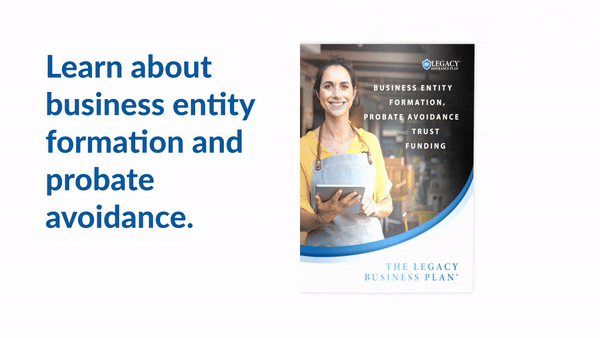A well-crafted estate plan can help safeguard the continuity of your business, ensure that it passes to your desired beneficiaries and protect your personal and business assets. In today's ever-changing legal and tax landscape, it is essential to stay informed about strategies to maximize the benefits of your estate plan.
One notable example of the importance of estate planning for small business owners is the 2014 U.S. Tax Court case, Frank Aragona Trust v. Commissioner. In this case, Frank Aragona had established a trust, named his five children as beneficiaries and funded the trust with several rental real estate properties. The Internal Revenue Service (IRS) attempted to classify the trust's control of the properties as "passive" ownership, which would have resulted in unfavorable tax consequences. However, the Tax Court ruled in favor of the trust, allowing it to claim active participation status, which offers more tax advantages.
While the Aragona Trust case involves complex legal and tax aspects, it underscores the broader significance of estate planning for small business owners. The Aragona family benefited from Frank Aragona's proactive approach to creating an estate plan that effectively integrated his business holdings. This case demonstrates the potential tax benefits that can be achieved through careful planning and the importance of staying current with evolving tax laws.
Beyond tax considerations, a comprehensive estate plan for small business owners should address several key areas:

- Business succession planning. Statistics show that most businesses fail to survive past the first generation, often due to a lack of proper planning. By creating a clear succession plan, you can ensure that your business continues to thrive even after you're gone. This may involve identifying a successor, such as a family member or key employee, and providing them with the necessary training and resources to take over the business seamlessly.
- Buy-sell agreements. These agreements outline the terms and conditions for the transfer of ownership in the event of a business owner's death, disability or retirement. They can help prevent disputes among partners or family members and ensure that the business continues to operate smoothly during the transition. For example, suppose you co-own a business with a partner. In that case, a buy-sell agreement can stipulate that upon your death, your partner has the right to purchase your share of the business at a predetermined price, preventing your heirs from unexpectedly becoming involved in the business.
- Estate tax planning. Small businesses often operate on tight cash flows and may lack liquidity. An unexpected estate tax bill can be crippling, potentially forcing the sale of the business to pay the tax obligation. By incorporating strategies such as gifting shares to family members over time, establishing trusts or utilizing the marital deduction, you can minimize or even eliminate estate taxes, preserving the financial stability of your business.
- Life insurance. Life insurance can be a powerful tool in executing your succession plan. By purchasing a life insurance policy and naming the intended buyer of your business as the beneficiary, you can provide them with the funds necessary to purchase the business upon your death. This ensures a smooth transition of ownership and can help prevent the need for your beneficiaries to sell the business due to a lack of liquidity.
- Asset protection. As a small business owner, it's crucial to protect your personal assets from business liabilities and vice versa. By utilizing legal entities such as trusts or limited liability companies (LLCs), you can create a barrier between your personal and business assets. This can shield your personal wealth from potential lawsuits or creditors targeting your business, and conversely, protect your business from personal legal issues, such as a divorce.
Real-life scenarios illustrate the importance of these estate planning strategies for small business owners. Consider the story of John, a successful restaurant owner who had poured his heart and soul into building his business over several decades. However, John had neglected to create an estate plan, and when he suddenly passed away, his family was left to navigate the complexities of managing the restaurant while grieving their loss. Without a clear succession plan in place, the restaurant struggled, and John's family ultimately had to sell the business at a significant loss to pay the estate taxes.

In contrast, Sarah, the owner of a thriving online retail business, had worked with an estate planning attorney to create a comprehensive plan. She had established a trust to hold her business interests, minimizing estate taxes and ensuring a smooth transfer of ownership to her children. Sarah had also purchased life insurance policies to provide liquidity for her estate and had created a detailed succession plan outlining her children's roles in the business. When Sarah passed away, her family was able to continue running the business successfully, thanks to the groundwork laid by her estate plan.
In conclusion, estate planning is a vital component of responsible business ownership. By proactively addressing succession planning, tax mitigation, asset protection, and liquidity concerns, small business owners can ensure the long-term success and continuity of their life's work. Engaging with experienced legal and financial professionals to craft a tailored estate plan can provide peace of mind, knowing that your business and your loved ones are well-protected. Don't let a lack of planning jeopardize your legacy – start building your comprehensive estate plan today.



